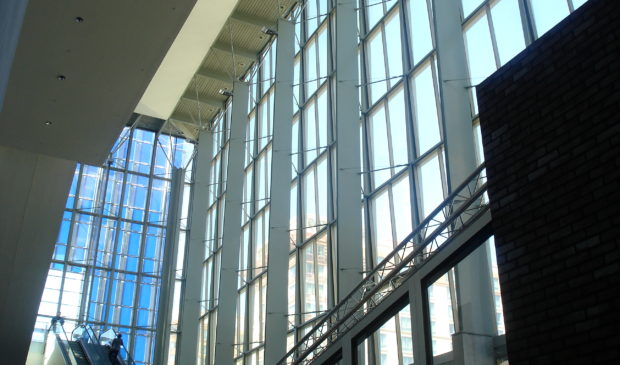Council takes long view on convention center, with eye toward spring
Wednesday, August 16, 2017 by
Chad Swiatecki A decision on whether City Council will opt to expand the Austin Convention Center likely won’t come until spring 2018, based on discussions at Tuesday’s Council work session.
That time frame came from Mayor Steve Adler after more than two hours of presentation and discussion on the recommendations of the city’s Visitor Impact Task Force, which was formed last year to examine how the city can best use the growing pool of revenue generated from its share of the Hotel Occupancy Tax, roughly $100 million in the most recent annual accounting, generated entirely by visitors staying in Austin hotels, motels and short-term rental businesses.
Adler said his preference would be to pass a resolution in late September directing city staff to assemble the information and procedural plans needed to determine how the city would go about implementing a 2 percentage-point increase in the HOT, much of which would be used to pay for a proposed expansion of the convention center that is estimated to cost about $600 million. A vote on whether to pull the trigger on the expansion would likely come four to six months later, Adler said.
The convention center expansion and the increased tax revenue that would come with it are seen by many in the city as a mechanism to pay for a variety of civic improvements without levying more taxes on residents.
Historic building preservation, parks programs and money to bolster Austin’s commercial music industry are some of the uses recommended by the Visitor Impact Task Force after its four months of meetings, and hotel industry leaders have signaled a willingness to tax themselves an additional percentage point and direct some of that money to assistance for the city’s growing homeless population.
James Russell, chair of the Visitor Impact Task Force, led Tuesday’s presentation and said task force members were mostly ambivalent about the prospect of expanding the convention center until it became apparent that a host of other projects could be funded with some of the revenue generated by the tax increase.
“When we started there were two groups on the task force, the business side that cares about the convention business and the people who don’t care about the convention business but want to do things that we wouldn’t be able to otherwise,” he said. “The entire purpose of our recommendation to expand the convention center is to maximize the use of the hotel tax and go forward with these projects we care about without funds from (Austin) taxpayers.”
It is estimated that commercial music, which is excluded from the cultural arts funds generated by the current 15 percent HOT rate would see $3.5 million available per year if the hotel tax is increased. Historic preservation grants, which are almost certain to be heavily revamped under any HOT change, would see a similar increase from the current $200,000 per year, much of which goes unused because of rigid eligibility guidelines.
Council members questioned many aspects of the proposed expansion, from the uses allowed under state law governing the tax to the actual increase in convention business that might result from an expansion.
Council Member Leslie Pool said the homeless resources assistance and an affordable housing tower proposed for the expanded convention center add confusion to the issue of whether the expansion by itself is a good fiscal move. Pool and other Council members also requested information on ways the city could use a HOT increase to fund projects in tandem with Travis County, such as a drastic renovation of the Travis County Expo Center.
“I have some skepticism that the expansion will cause the flow of revenue that is being promised, and I’m not convinced that it’s going to create a waterfall of dollars through our downtown,” she said. “The estimates are 2 percent of visitors come here for conventions, and I don’t have the certainty that we’ll see an increase in that number.”
Adler, who has cast the convention center expansion as a large piece of his “downtown puzzle” concept of the many interconnected needs in the city’s core, said he started off skeptical about the idea as well.
“The question was, is there a burden with the convention center such that we don’t want to access the additional money that will come available?” he said. “Like many I had concerns over another possible block of dead space, but I’m not sure that the convention center model has ever been one that is a revenue generator on its own.”
Photo by Non-dropframe made available through a Creative Commons license.
The Austin Monitor’s work is made possible by donations from the community. Though our reporting covers donors from time to time, we are careful to keep business and editorial efforts separate while maintaining transparency. A complete list of donors is available here, and our code of ethics is explained here.
You're a community leader
And we’re honored you look to us for serious, in-depth news. You know a strong community needs local and dedicated watchdog reporting. We’re here for you and that won’t change. Now will you take the powerful next step and support our nonprofit news organization?



